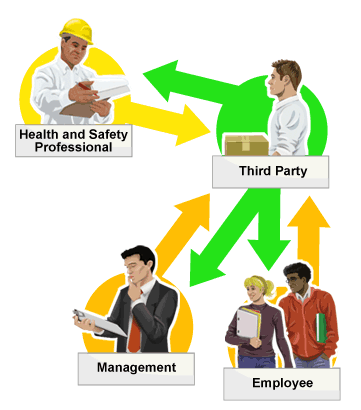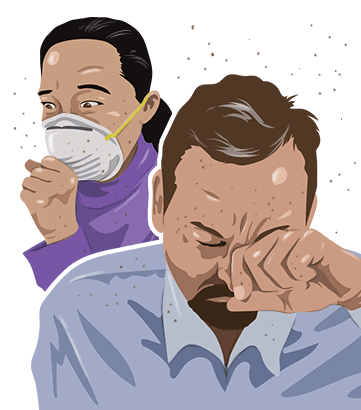

Trusted & Reviewed
5.0 / 5.0 |score based on 64,043 total reviews.
This Health & Safety Management Course learning outcomes include; Advanced management, 5 Steps to Risk Assessment (INDG163), HSG65 and case law to define principles including absolute, practicable, reasonably practicable and reasonable. Risk management including; COSHH, fire risk, hazards, control of contractors, accident management, legionella and gas service maintenance amongst other modules.
Learn more.
Key-points of IBIS Training
Pricing
Bulk Pricing Explained
Organisations, Groups and Businesses training 25 or more people with this course pay £70 per person.
Larger orders from Agencies & Enterprises, training 100 or more people with this course, only pay £24 per person.
These bulk discounts are automatically applied at checkout for your convenience.
Our clients trust us to deliver and guide them through their workplace training.







This online course includes all of the 20 lessons above. It is designed to develop the trainees Health & Safety Management skills for health and safety compliance in the workplace, providing valuable real-world learning outcomes at a high speed. It's used by individuals, groups and businesses to train their workforce across industries including Education & Schools, Manufacturing & Engineering, Offices & Business Services, Retail, Digital Services & Design, Government & Institution, Charities & NGO, Oil, Gas & Mining, Travel & Leisure, Care Homes & Domiciliary Care, Hospital Recruitment, Logistics & Maritime, among others.
Provided by IBIS Training based in London, it's accessible at anytime online from an internet connected device at work or home, such as a computer, tablet or smart phone. Teams have access to a highly rated LMS and all successfully completing trainees achieve a Certificate of Completion.
—This advanced Health & Safety management course provides an understanding of the Risk Assessment Process following the HSE's guide '5 Steps to Risk Assessment', and uses case law to define principles including; Absolute, Practicable, Reasonably Practicable and Reasonable.
Our course delves into the meaning behind the thinking of 'reasonably practicable' and looks at how the term 'reasonable man' is defined, and explores the significant differences in law and foreseeability. We look at "What is the Duty of Care, and who does it extend to?", Case Law is used to explain key principles such as an employer's duty of care cannot be delegated, individual duty of care and personal liability (criminal).
We also discuss vicarious liability and which sections of the 'Health & Safety at Work etc. Act 1974' are used to prosecute individuals, exploring in detail the powers of the enforcing authorities.
We also walk through accident management, communication and health & safety culture and identify vulnerability, disability and how they should be incorporated into the Risk Assessment process.
We talk about identification of initial risk and residual risk factors, and how calculations (although not compulsory) may be used to enhance your understanding and observation of priorities, while defining and explaining the Hierarchy of Control.
This course explores the common failures of risk assessments, and addresses the four fundamental ingredients to be considered; People, Equipment, Materials and the Environment.
In addition to the health and safety management principles, we take a closer look at common workplace hazards, and provide a greater detail of explanation concerning each subject.
For example, under Hazardous Substances, how Materials Safety data Sheets (MSDS), Long Term (LTEL) and Short Term (STEL) exposure limits are defined as well as the change between Occupational Exposure Limits (OEL) terms, ensuring an understanding of the common terms used in health and safety management today. We also cover explanation of the different types of sampling methods such as including grab, static and personal sampling techniques.
Course Tags: rep, representative, hse, accident, management, law, managers, risk assessment, hsg, 65, safety coordinator, nebosh, fire risk, coshh, contractor, legionella, wellbeing, duty of care, case law, health and safety, hazard, audit, analysis, nebosh, popular, award, level 3, cpd,
Book a free consultation with an experienced specialist to find the right course or create bespoke custom training for your team, there's no commitment.

Understand computer workstation safety (DSE) such as the chair, screens and peripheral equipment including foot rests and wrist supports to safely improve pain and discomfort for your colleagues.

Understand active listening skills, manipulate situations with a range of behaviour techniques, using social influencing theories with interactive scenarios.

Understand computer workstation safety (DSE), fire safety, manual handling and accidents, as well as an understanding of electrical equipment and personal protection equipment (PPE), stress and wellbeing.

Understand legionnaires disease bacteria and how outbreaks can be avoided with maintenance of hot and cold water systems in commercial environments such as an office as well as industrial environments with cooling towers.

HSE 5 Step guide including hierarchy of control and managing; people, equipment, materials and their environment. Understand the initial and residual risk factors including the likelihood and severity calculations.

Understand assessment of chemicals and other hazardous substances, exposure levels and suitable control measures to comply with the Control of Substances Hazardous to Health Regulations.